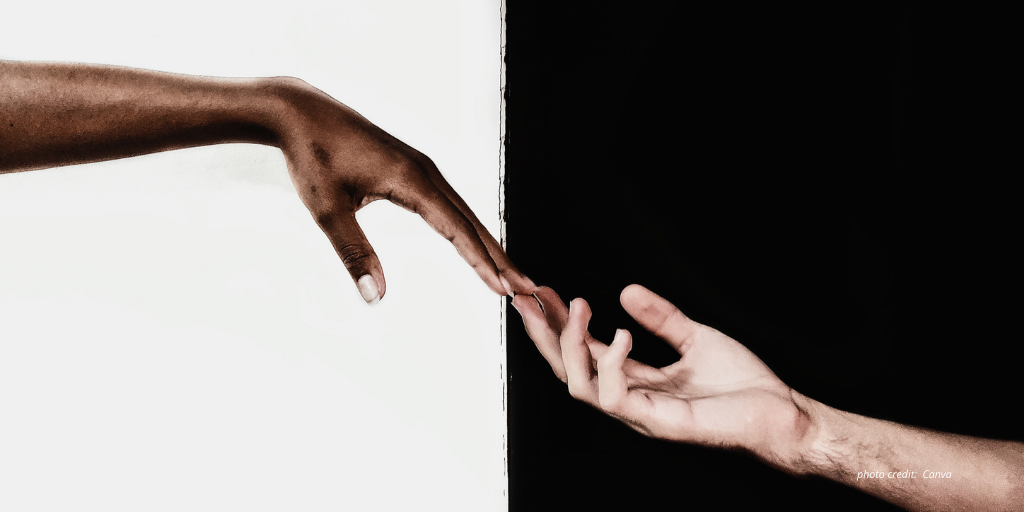This is territory that’s challenging for many of us, myself included: being able to ask for help and knowing when to ask. I’m amazed by people who are able to; most of us know someone who can freely ask for help and, therefore, gets a lot of external support. What’s amazing about these people is that they believe other people are here to help them, and that they can take full advantage of that wisdom. I don’t say this with criticism, but rather with awe.
If you have someone in your life that constantly asks for support but you haven’t set boundaries about what you’re capable of giving, this isn’t a reflection of the other person. It’s simply a mirror into your ability to set clear boundaries. If you want to ponder that topic more, you can read my previous articles on healthy boundary setting here.
For those that struggle with asking, let’s broach the topic from this angle: What part of asking is most challenging for you? For me, it is multifaceted: I am challenged by my fear of not being enough – whether that’s capable, smart, or strong enough. I feel that if I’m not those things then I must be weak in some way and no one will respect or like me.
We all have different (or similar) reasons why asking for help can be hard. Perhaps we don’t want to be perceived as weak or incapable. As a woman it’s something I battle with, as I’ve felt like I’ve had to work so hard to be seen as equal to men, and in most cases I haven’t and have felt repressed. As a man it can be challenging, because you’re meant to be strong and capable. There are so few examples of men asking for help who are rewarded rather than shamed.
I’m not going to unpack the complexity of gender or gender roles; I’m simply illuminating the fact that asking for help is a complex and multi-dimensional topic.
When I finally ask for help, I’ve typically spent days, weeks, or months bartering with myself about why I don’t actually need it. The story I tell myself is that I shouldn’t need help. The most challenging time for me to ask for help is when I’m bumping up against something that’s deeply emotional. Yet I also struggle with asking for basic support around physical help, and I often end up finding someone I can pay so it feels like a fair exchange. But I end up feeling like I’m not worthy of another’s generosity.
Often when we seek help it’s because we’ve pushed so far past a healthy place. We’ve possibly already landed in a precarious and fragile state. An example of this is going to see your doctor about physical pain before it turns into a chronic issue. Or realizing you need to get on your roof and are uncomfortable with asking someone for help for fear of inconveniencing them, yet putting yourself at risk to mitigate asking.
Psychological support is worthy and yet most of us wait till we’re teetering in major physical and emotional discomfort before asking for help. If we (collectively) could learn to seek emotional support before breaking, could we be a more ‘well adjusted’ society emotionally? Having a person outside of your life (not a friend) who can give you unbiased support is key to feeling supported.
I think some of us have little idea of what being supported feels like because we have learned that it isn’t safe to ask for help. Maybe we were made fun of, shamed, or criticized. Perhaps we didn’t see our elders or our caregivers ask for help, admit their failures, or be comfortable with not having all the answers.
Here’s what people who ask for help have figured out: People LOVE to help. We love being useful and being of support to others, at least there are those of you who do. For many, when we ask for help it creates trust in a relationship because we’re choosing to turn to someone else for support. It can create bonds and open communication. It has potential to improve relationships. If you have had the opposite experience with someone, they may just not have been the person to ask.
When asking for support, we often need to feel that we have self-agency and that we aren’t giving our power over to someone else. We need to feel that our power remains within us. We get to choose to ask. We get to choose to build trust in our relationships. We get to get ask for emotional or physical help in a way that bolsters our relationships instead of taking away from them or disempowering us. Some of us may deeply struggle with this, asking may feel way too vulnerable and unknown. If that’s your experience there may be room to explore finding your voice in other ways. Things that can be explored by the help of someone/counsel that you trust (which is also asking for help).
What does this concept or idea bring up for you? Can you see the potential for improving your relationships, or do you see the idea as scary or as one that brings up uncertainty? Either way, it’s worth exploring and finding your way through it.
with love,
Noelle

